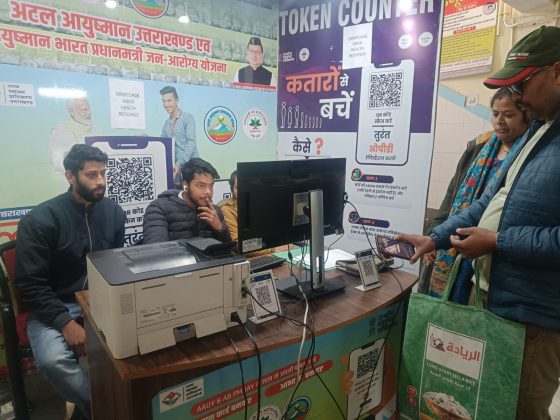DAINIK NATION BUREAU : In a significant move towards more sustainable and environmentally conscious elections, the Election Commission of India (EC) has embarked on a renewed effort to promote eco-friendly campaigns in the lead-up to the state polls. As concerns about climate change and environmental degradation continue to mount, this proactive approach by the EC not only highlights the importance of responsible campaigning but also sets a precedent for political parties and candidates across the nation.
The Election Commission’s latest push for eco-friendly campaigns comes at a crucial time when the world is grappling with the far-reaching impacts of climate change. Increasingly, governments and organizations are recognizing the necessity of adopting more sustainable practices in all aspects of life, and electoral campaigns are no exception. The EC’s initiative underscores the potential to reshape traditional campaign methods and encourages political stakeholders to adopt greener alternatives that minimize their ecological footprint.
Historically, election campaigns in India have been marked by vibrant rallies, extensive use of promotional materials, and loudspeakers blaring messages across streets. Unfortunately, these practices often lead to substantial waste generation, air pollution, and noise pollution. The EC’s renewed emphasis on eco-friendliness urges political parties to rethink their strategies and embrace methods that align with environmental concerns.
One notable aspect of the EC’s initiative is the promotion of digital campaigns. In an era dominated by technology and social media, digital platforms offer a convenient and eco-friendly way to reach out to voters. By leveraging the power of social media, candidates can communicate their messages to a wider audience without the need for excessive paper-based advertising or energy-intensive rallies. This shift not only saves resources but also ensures a more direct and personal connection with voters.
Moreover, the Election Commission’s push for eco-friendly campaigns encourages political parties to reduce their carbon footprint. This could mean opting for more energy-efficient transportation methods or embracing public transportation where feasible. By doing so, parties can contribute to the reduction of air pollution, congestion, and greenhouse gas emissions that are often associated with conventional campaign activities.
The adoption of sustainable campaign practices doesn’t merely benefit the environment. It also underscores a commitment to responsible governance and demonstrates a party’s understanding of the concerns shared by the electorate. Voters today are increasingly conscious of environmental issues, and political parties that prioritize sustainable campaigning are likely to garner greater respect and support from the electorate.
As state elections draw near, it’s imperative that political parties and candidates heed the Election Commission’s call for eco-friendly campaigns. By embracing innovative and responsible campaign strategies, parties have the opportunity to lead by example and inspire meaningful change. This shift is not just a one-time endeavor but sets the tone for a more sustainable and environmentally conscious political landscape in the years to come.
The Election Commission’s recent push for eco-friendly campaigns serves as a beacon of hope in a world grappling with environmental challenges. By championing sustainable practices in election campaigns, political parties can not only reduce their environmental impact but also demonstrate their commitment to addressing pressing issues. As citizens, let’s encourage and support such initiatives that reflect a collective effort towards a greener and more responsible future for our nation.
 Dainik Nation News Portal
Dainik Nation News Portal


